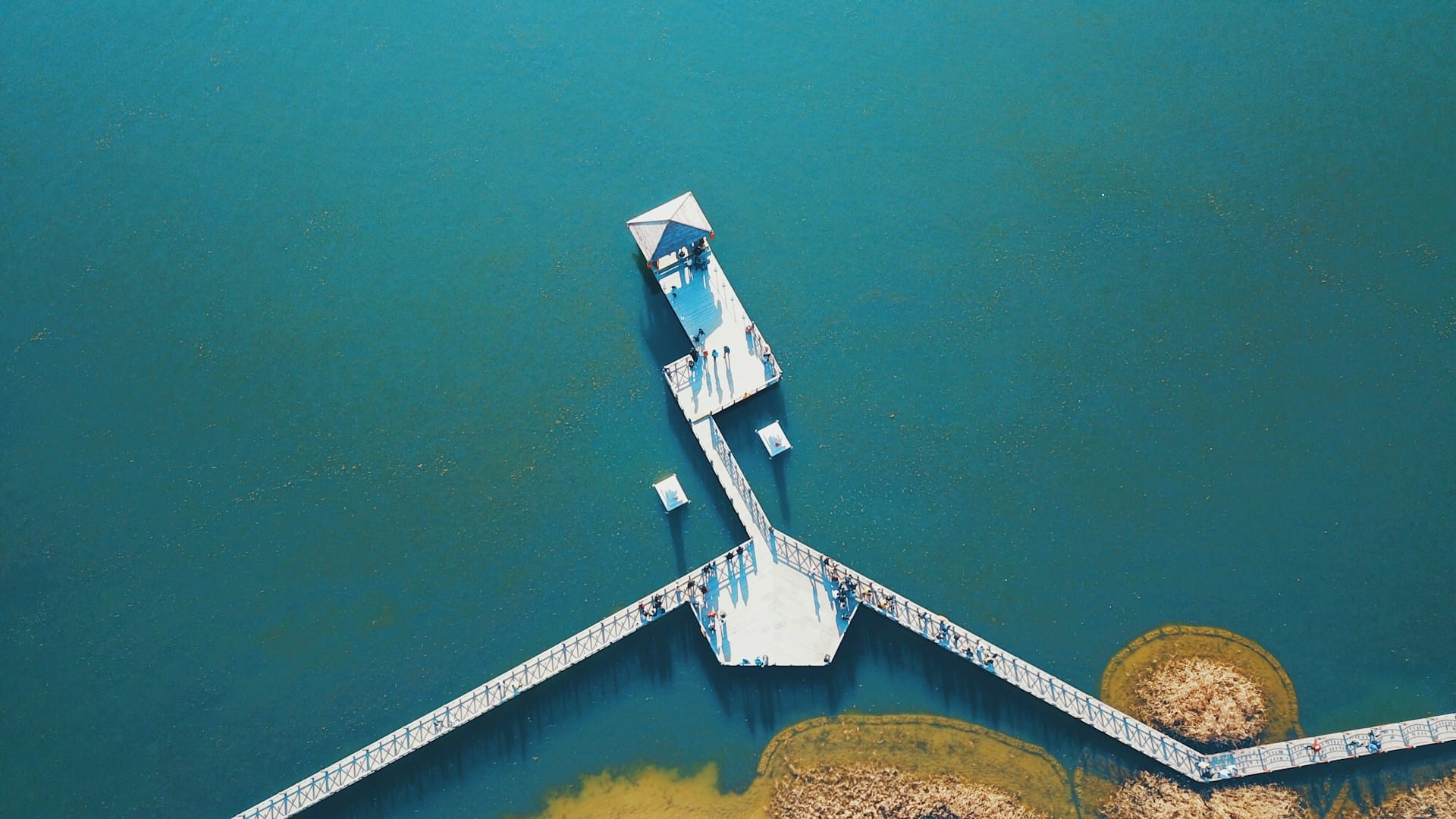A floating dock rests on top of the water and rises or falls with changing water levels. It’s anchored to the shore or the lakebed, but its surface remains above the water at all times.
Common uses:
- Recreational docks
- Kayak or paddleboard launches
- Seasonal access points
- Variable-depth lakes
What Is a Fixed Dock?
A fixed dock is supported by pilings or posts driven into the lakebed. It stays at a constant height above the water, no matter how water levels rise or fall.
Common uses:
- Permanent boat slips
- Marina-style walkways
- Shallow, stable lakes
Floating Dock Pros
- Adapts to water level changes: Great for Texas lakes with fluctuating depths or seasonal droughts.
- Easier to install and move: Many floating docks are modular, allowing for quick setup, expansion, or repositioning.
- Safer in storms: A floating dock can flex with waves and avoid structural damage.
- Comfortable barefoot use: EZ Dock floating systems stay cooler than wood and have slip-resistant surfaces.
- Low-maintenance: No rot, no rust, and no repainting—just rinse off and go.
Floating Dock Cons
- May feel less stable under heavy loads (though high-quality systems solve this)
- Not ideal for rough, open water where heavy waves are constant
- Requires anchoring systems that work with your lakebed type
Fixed Dock Pros
- Rock-solid stability: Great for lifting heavy equipment or long-term storage
- Traditional appearance: Fits classic lakefront aesthetics
- Permanent structure: Typically requires less frequent repositioning
Fixed Dock Cons
- Vulnerable to flooding and drought: If water levels shift, the dock may sit too high—or underwater
- Costlier to repair: Piling damage, rot, and settling require professional work
- Less flexible: Can’t move easily if shoreline changes or needs evolve
Which Is Better for Texas Lakes?
Choose a floating dock if:
- Your lake has frequent water level changes
- You want an easy-to-maintain, modular setup
- You enjoy kayaking, paddleboarding, or swimming
- You need a dock that adjusts to Texas’s unpredictable weather
Choose a fixed dock if:
- Your lake is shallow and stable year-round
- You want a permanent boat slip or heavy-use structure
- You’re building on solid rock or firm clay
In most Texas lake environments—especially where drought or seasonal variation is common—floating docks are the safer, more adaptable choice.
Still Not Sure? We Can Help.
Choosing the right dock isn’t just about structure—it’s about lifestyle. EZ Dock Texas helps homeowners, businesses, and lake lovers find the ideal system for how they use the water.
From fishing and boating to family hangouts and paddleboarding, we’ll help you build a dock that fits your life—now and for years to come.
Visit EZ Dock Texas to get started or follow us on Facebook for more dock planning tips, comparisons, and ideas.







